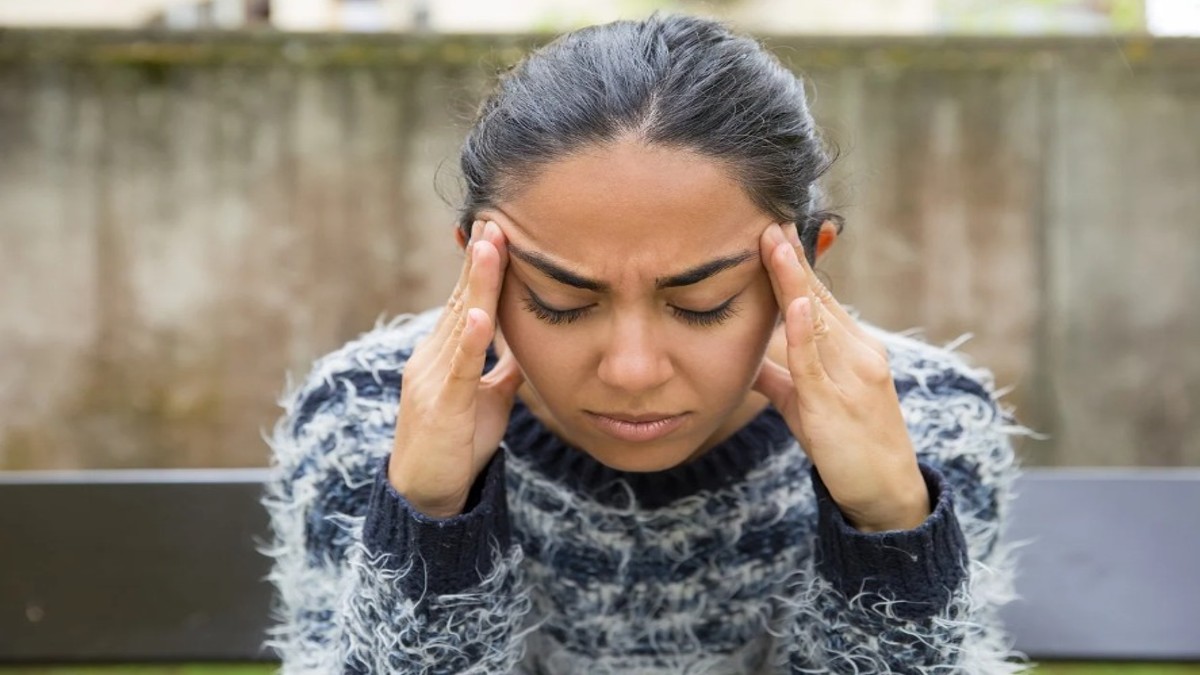One of the most vibrant and lively festivals, Holi, is just around the corner.
The fact that Holi this year coincides with a long weekend is the best part of the celebration of colours.
Special drinks and snacks are made at home for Holi and enjoyed with loved ones.
Bhang is the king of the drink table on this day.
Often referred to as thandai, bhang is a beverage prepared by combining a paste derived from the leaves and flowers of the female cannabis plant with milk, spices, and sweets.
People drink the beverage because it makes them feel ecstatic.
But after the first euphoria wears off, there’s also the inevitable hangover the following morning.
This phenomenon is often dubbed hangover anxiety, aka ‘hangxiety’.
Here’s what it means.
What is hangxiety?
The term “hangxiety” describes the intense anxiety that accompanies hangover.
It can be characterised as the unpleasant emotional and neurotic repercussions of using alcohol or any other cannabis-based product, according to CBC News.
Increased heart rate, perspiration, nausea, and jitters are all physical signs of anxiety, alcohol withdrawal, and hangovers following a night of excessive drinking, according to Andrew Kim, assistant professor in the University of Calgary’s psychology department, who was reported by CBC News.
“Almost anyone who drinks any alcohol will experience alterations in their brain when they’re coming off the alcohol. With a small amount of drinking that may manifest as confusion, but after larger quantities you can have anxiety,” author and neuropsychopharmacologist David Nutt, who specialises in alcohol’s effects on the brain at Imperial College London, told National Geographic.
Impact Shorts
More ShortsWhy does it happen?
This phenomenon is mostly caused by alcohol’s effects on gamma-aminobutyric acid (GABA), a neurotransmitter that is essential for controlling stress and sleep.
Alcohol’s interaction with GABA receptors momentarily reverses the normal calming effect of GABA on the central nervous system, leading to a depletion of GABA levels. As a result, those who have had alcohol afterward have lower levels of GABA, which exacerbates anxiety.
This intricate interaction is further complicated by alcohol’s effects on glutamate, another neurotransmitter. Alcohol causes the brain to create more glutamate because it lessens its stimulatory effects. This excess glutamate causes anxiety after sobriety.
For those who drink infrequently, the “hangxiety” usually passes in a day or two. On the other hand, prolonged alcohol use throws off the delicate neurotransmitter balance, which makes recovery take longer.
Acetaldehyde, a breakdown product of alcohol, can exacerbate symptoms of dysregulation in habitual drinkers, according to the New York Post which quoted Stephen Holt, head of Yale-New Haven Hospital’s addiction recovery clinic.
“Throughout the day, as the acetaldehyde is excreted, your body is recovering from having been poisoned,” Holt explains.
How can you cure your Holi hangxiety?
Relieve your ‘hangxiety’ this Holi, with the following tips.
Drinking plenty of water will rehydrate your body and flush out toxins.
Coconut water and other electrolyte-rich beverages can help restore lost nutrients.
You can lower your risk of nausea and control your blood sugar by eating a well-balanced meal full of proteins, carbs, and healthy fats.
According to Hindustan Times which quoted Dr Suchismitha Rajamanya, HOD at Internal Medicine, Aster Whitefield Hospital, Bengaluru, herbal teas with relaxing properties, such as peppermint or ginger, can ease stomach discomfort. Your body may heal itself by resting in a quiet, dark environment.
Limit your alcohol and bhang intake to prevent symptoms from getting worse. As soon as symptoms develop or continue, get medical help.
With inputs from agencies
)